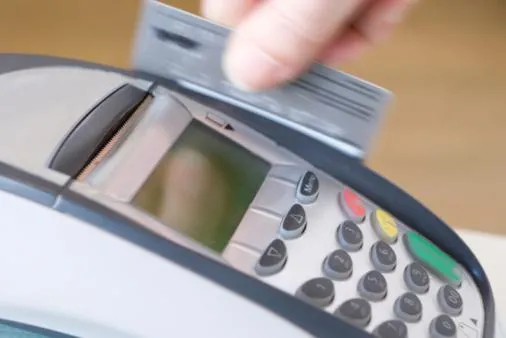
Looking For Reliable IT Services In Myrtle Beach?
(800) 478-8105
Attention Shoppers: Yet Another Major Company is in the Midst of a Data Breach

Keep Track of Your Financial Statements If You’ve Shopped at Staples Lately!
It seems like every time we read or watch the news, another major company is in the midst of a data breach – from Target to Michaels to Home Depot, and unfortunately, Staples can officially be added to the list! The popular retailer has confirmed that it’s investigating a potential data breach after multiple banks reported point-of-sale breaches across many of the retailer’s locations in the United States, including:
7 stores in Pennsylvania
A minimum of 3 stores in New York
A minimum of 1 store in New Jersey
While this might appear to be relatively minor breach, most breaches start out that way – and as new details surface, we’ll likely discover more and more affected locations. So what does a point-of-sale breach mean? Well, a point-of-sale breach occurs when a hacker installs malware onto a company’s point-of-sale machine (credit card reader).
Once the malware is installed, any consumer who’s swiped their card can become victim of financial fraud and/or theft, which means the security code and the name on the card are stolen, and could potentially be used to make fraudulent charges.
Mark Cautela, Staples Spokesman, discussed the potential breach, “Staples is in the process of investigating a potential issue involving credit card data and has contacted law enforcement.”
He continued, “We take the protection of customer information very seriously and are working to resolve the situation. If Staples discovers an issue, it’s important to note that customers are not responsible for any fraudulent activity on their credit cards that is reported on a timely basis.”
Have YOU Shopped at Staples in the Past Few Months? Follow These Simple Yet Effective Tips Immediately to Mitigate the Risks of Fraud and/or Theft!
If you’re someone who regularly shops with a credit card, you should start preparing yourself for more potential data breaches. Why? It seems hackers have found effective techniques and tactics to hack point-of-sale systems. So here’s a few simple tips to mitigate the risks of fraud and/or theft:
Keep software/systems up-to-date: Always keep your anti-virus software, web browser, operating system, and other critical software/systems up-to-date and current.
Protect web-enabled devices: Your smartphones and tablets are prone to malware infection, so make sure you’ve installed anti-virus software to keep them safe.
Use two-factor authentication: Whenever an online service offers two-factor authentication, always use it to reduce the risk of hacking while enabling a higher level of security.
Make strong passwords: All of your passwords should be strong and unique; combining capital letters, lowercase letters, and numbers/symbols to help you stay protected.
Set privacy/security settings: Whenever privacy/security settings are available on social media websites, use them and limit the information you’re sharing and those who can view your profile.
Use separate passwords for separate accounts: Always use a separate password for each account; so if one account is hacked, the other accounts will still be safe.
Never open email attachments: If you receive a suspicious email with an attachment, don’t open it without verifying that the sender actually sent the attachment.
Still feeling concerned about the data breach? Give us a call at (800) 478-8105 or send us an email at [email protected]. Our team of cybersecurity experts will keep you up-to-date on the latest news regarding the data breach.
Tired Of Empty Promises?
Contact Us Today And Book Your
Free Technology Consultation
With The Region’s Top IT
Company

Step One
Listen To What Our Clients Say:
GET IN TOUCH
1293 Professional Drive
Myrtle Beach, SC 29577
(800) 478-8105
(843) 222-6198
Privacy is our policy. We may contact you from time to time with special offers but we will never sell or provide your information to anyone outside of our company.
CONNECT
Call (800) 478-8105 today to schedule your free technology assessment
Remote Tech Services provides IT Support & IT Services for businesses in Wilmington, Sunset Beach, Calabash, Little River, North Myrtle Beach, Myrtle Beach, Florence, Conway, Longs, Georgetown, Charleston and throughout the Grand Strand.





